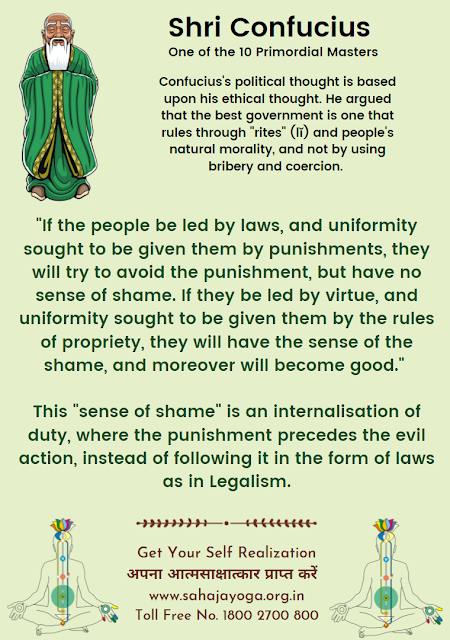The teachings of Shri Confucius

The teachings of Shri Confucius Self-discipline The teachings of Confucius are still actively practiced around the world and reforming societies through education. The Noble, he says, is not a Saint; Saints are born and remain such, whilst people become Noble thanks to self-education. His task is education, not contemplation. His aim is the Noble, not the Saint: “A man of noble mind can acquire a culture by assiduous study and by observing the ancient norms he gives it a complete order” . Research of Balance “The Centre as such only respects two extremes; knowing the two extremes, the Centre will be known as an harmonic point between them. Centre is that state in which neither hope nor rage, neither pain nor happiness will be felt.” “Harmony is the state in which these feelings are manifested, but totally obey to the right rhythm.” “The Constant Middle is the maximum, the apex and the summit, and is few the men who are capable to keep to them for long.” “Balance is the



